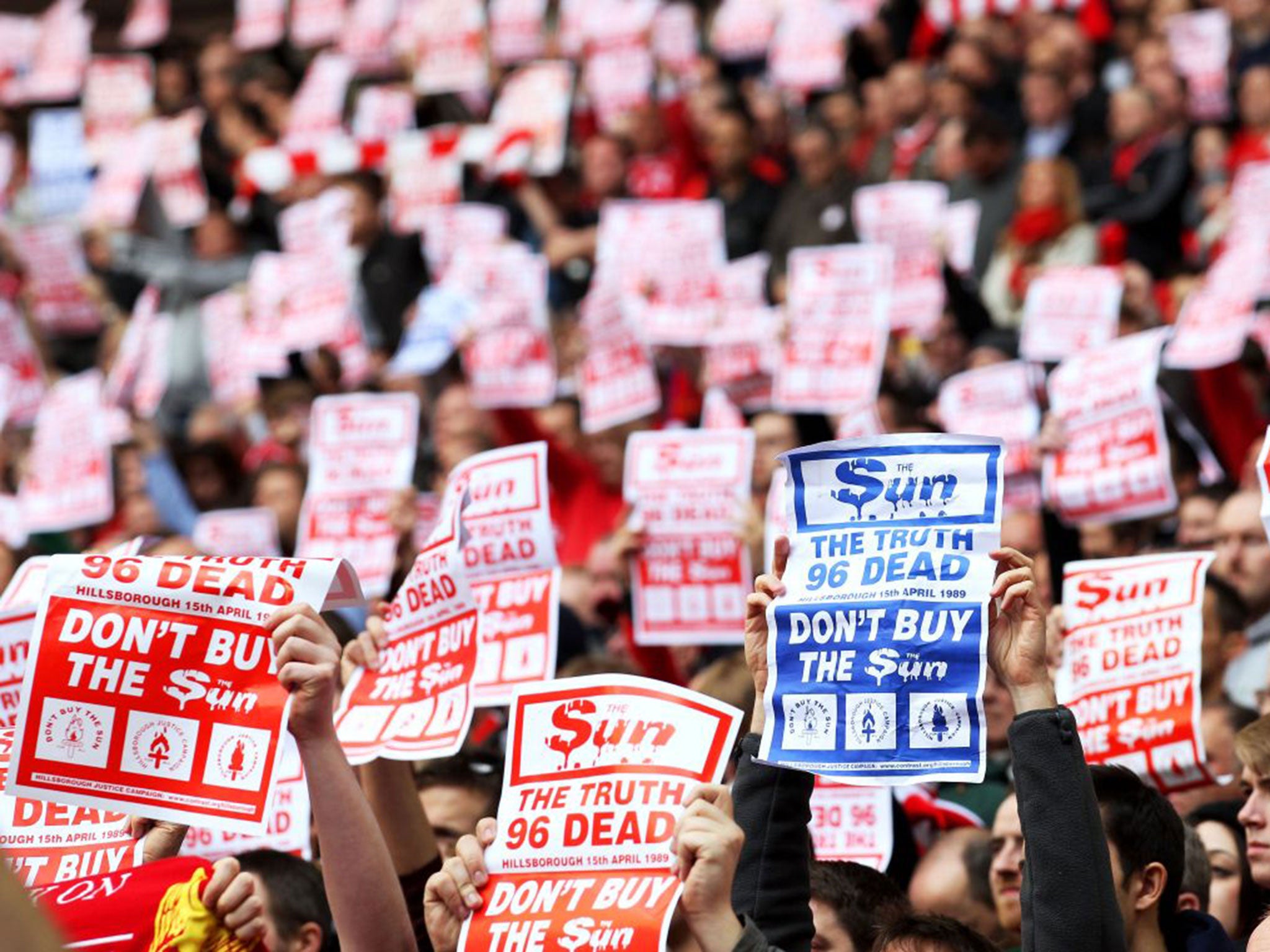The inquest delivered justice to the families of the Hillsborough victims so why couldn’t The Sun?
Instead of a heartfelt apology which could have made valuable steps towards healing decades-long wounds, the people of Liverpool were faced with one final injustice

Your support helps us to tell the story
From reproductive rights to climate change to Big Tech, The Independent is on the ground when the story is developing. Whether it's investigating the financials of Elon Musk's pro-Trump PAC or producing our latest documentary, 'The A Word', which shines a light on the American women fighting for reproductive rights, we know how important it is to parse out the facts from the messaging.
At such a critical moment in US history, we need reporters on the ground. Your donation allows us to keep sending journalists to speak to both sides of the story.
The Independent is trusted by Americans across the entire political spectrum. And unlike many other quality news outlets, we choose not to lock Americans out of our reporting and analysis with paywalls. We believe quality journalism should be available to everyone, paid for by those who can afford it.
Your support makes all the difference.Something was remiss on the newsstands this morning. Two newspaper front pages seemed out of place among their peers by failing to cover the outcome of the Hillsborough inquest on their front pages – the one that found 96 football fans were unlawfully killed 27 years ago.
One of these newspapers, The Times, later changed its front page to cover the story and issued an apology for their ‘mistake’. Another, the sister paper of The Times and arguably the most important of all the papers today remained steadfast in its decision. The Sun deemed the PM using Whatsapp to discuss Brexit as more important than a ground-breaking inquest into a 27-year institutional cover-up.
The tabloid carried the story on pages eight and nine and dedicated an editorial ‘unreservedly’ apologising for its front page coverage of the disaster in 1989, when it claimed that fans pickpocketed the dead and urinated on police officers. The newspaper, edited at the time by Kelvin MacKenzie, ran these claims from anonymous police officers. Later a police officer admitted they were false.
This was the front page that led to a boycott of the paper across Merseyside which holds to this day. Everyone in my hometown of Liverpool knows someone who lost a loved one to the disaster – and as a result, everyone always knew that the events as described in The Sun were false. Video evidence would eventually prove this by showing that it was fans who helped victims, creating makeshift stretchers out of advertising boards that surrounded the pitch, while the response from the police and ambulance service conspicuously failed those inside the stadium.
From a newspaper perspective, the editorial decision to cover an issue on its front page is one based upon the newsworthiness of a story and an editorial is the place for the paper to outline its position on the issues of the day.
Yet there is a disconnect between this journalistic tradition and how readers see front pages. Front pages are symbolic and say more about a newspaper’s identity than a short editorial column tucked away on its inside pages. The tabloid apologised 12 years ago and on its front page four years ago, but today was the day that mattered. If front pages are significant, then so is timing.
The best practice suggested by the Independent Press Standards Organisation and the Press Complaints Commission is to trail an apology on the front page leading to a longer apology inside, and this is the very least The Sun could have done. The Sun has declined to comment to The Independent why it did not take this decision.
Perhaps whatever The Sun would have done the boycott in Merseyside would have held unwavering. But that isn’t the point. This was about justice – and instead of a heartfelt apology which could have made valuable steps towards healing decades-long wounds, we were faced with one final instance of injustice.
Join our commenting forum
Join thought-provoking conversations, follow other Independent readers and see their replies
Comments